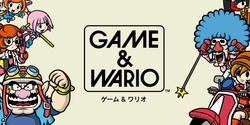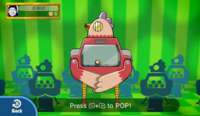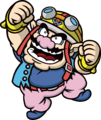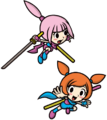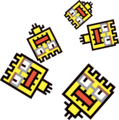Game & Wario: Difference between revisions
m (Text replacement - "{{([Cc]olor|[Cc]olor-link|[Cc]olor-link-external)\|(1=)?([^\|{}\n]+)\|(2=)?([^\|{}\n]+)([\|}])" to "{{$1|$5|$3$6") |
m (Text replacement - "dejus=" to "classind=") |
||
| Line 8: | Line 8: | ||
|languages={{languages|en_us=y|en_gb=y|fr_fr=y|fr_ca=y|es_es=y|es_latam=y|de=y|it=y|ru=y|jp=y}} | |languages={{languages|en_us=y|en_gb=y|fr_fr=y|fr_ca=y|es_es=y|es_latam=y|de=y|it=y|ru=y|jp=y}} | ||
|genre=Party | |genre=Party | ||
|ratings={{ratings|cero=A|acb=G|esrb=E|pegi=7|usk=6| | |ratings={{ratings|cero=A|acb=G|esrb=E|pegi=7|usk=6|classind=l}} | ||
|modes=Single player<br>Multiplayer | |modes=Single player<br>Multiplayer | ||
|platforms=[[Wii U]] | |platforms=[[Wii U]] | ||
Revision as of 11:18, June 6, 2024
- "GAME & WARIO" redirects here. For the WarioWare: D.I.Y. Showcase microgame with the same name, see GAME & WARIO (microgame).
| Game & Wario | |||||||||||||
|---|---|---|---|---|---|---|---|---|---|---|---|---|---|
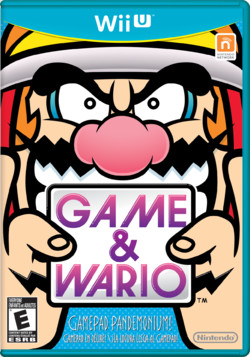 North American box cover For alternate box art, see the game's gallery. | |||||||||||||
| Developer | Nintendo SPD Group No.1 Intelligent Systems[1] | ||||||||||||
| Publisher | Nintendo | ||||||||||||
| Platform(s) | Wii U | ||||||||||||
| Release date | Template:Release[?] | ||||||||||||
| Language(s) | English (United Kingdom) English (United States) French (France) French (Canada) German Spanish (Spain) Spanish (Latin America) Italian Russian Japanese | ||||||||||||
| Genre | Party | ||||||||||||
| Rating(s) |
| ||||||||||||
| Mode(s) | Single player Multiplayer | ||||||||||||
| Format | Wii U: | ||||||||||||
| Input | Wii U:
| ||||||||||||
Game & Wario is a party game for the Wii U console. It is part of the WarioWare series[2] (sometimes described as being a spin-off of the series).[3] Like other WarioWare games, the game stars Wario and his employees at WarioWare, Inc. and is set in Diamond City. However, unlike other WarioWare games, which feature hundreds of brief microgames, Game & Wario features sixteen larger minigames. The game can be played by one to five people. The game's title and logo are a reference to the Game & Watch series.
Story
Wario is watching television at his house. He changes channels, until noticing a report about a newly released console, featuring a controller with a screen (similarly to the Wii U GamePad). He figures he can make a fortune by making games, so Wario feverishly starts working on his computer. His friends in Diamond City also hear news about the console, and have shown interest in creating games for it as well.
Wario's Pirates game proves to be a success in the toy shop Toy Express, with Wario (in his pirate costume) stating that the game's success is due to him designing it. After hearing Wario say this, the game's fans, mistaking him for the villain, create a large energy ball that blows Wario away. Wario crash lands into Club Sugar, where the rest of Wario's employees are dancing. In response, Jimmy T smugly remarks, "Crashin' the party? That's our Wario." He then proposes to go bowling, which the other WarioWare employees enthusiastically accept.
Gameplay
Game & Wario is a spin-off of the WarioWare series. The microgames of the previous installments are mostly replaced by lengthier minigames. The game features sixteen minigames, twelve of which are single-player (two featuring a two-player mode) and four more being multiplayer-only minigames. Each minigame is hosted by a different character. Along with the solo and multiplayer modes, there is a separate game mode named Miiverse Sketch, which is not hosted by any character and is the only game played using Miiverse.
Single-player
| Host | Minigame | Description |
|---|---|---|
| Wario | 
|
A shooting minigame that requires players to use a bow and arrow to shoot the on-screen MechaWario minions. The minigame is played by holding the GamePad vertically, aiming at the television screen, and using the touch screen to draw and fire the arrow at the enemies. If the MechaWario minions reach the television screen, they will appear on the GamePad's touch screen, where the player must tap them on the touch screen to make them disappear. A MechaWario boss also appears in the minigame as a boss. The player can also use pepper shakers by tapping the nose on the arrow which can have a bigger impact than the regular arrow. |
| Mona | 
|
In this minigame, players must search a variety of places (depending on the level) to look for hidden people. It is played by holding the GamePad in front of the television like a camera. Once players take a picture of one of the hidden people, they must tilt the GamePad down to send it to the newspaper editor. The newspaper editor will then give the player feedback on the picture and tell the player if they need to improve on the picture they took. The player can take multiple pictures for a better score but they have a limit on how many they can take. They can also take pictures of a "rare creature" (a Fronk) to get bonus points. |
| Jimmy T | 
|
A skiing game in which Jimmy T must ski down the mountain to reach the finish line. Players control Jimmy by holding the GamePad vertically and tilting it left and right. |
| Kat & Ana | 
|
A puzzle minigame that involves placing patches onto a cloth to eventually create the shape of an object. |
| Young Cricket & Master Mantis | 
|
In this minigame, Young Cricket automatically jumps off each platform after he lands on one. The player must tilt the GamePad to move Young Cricket above platforms while he is in midair. The player can also press the |
| 9-Volt & 18-Volt | 
|
A minigame with a similar gameplay to the WarioWare games, playing microgames in the GamePad. Gameplay consists of pausing the game with the |
| Dr. Crygor | 
|
A minigame where the 1 or 2 players must memorize outlines and shapes to redraw them into specified lengths as accurately as possible to build a robot. |
| Ashley & Red | 
|
This minigame involves Ashley & Red. Ashley flies around on Red (transformed into broom) collecting different sweets as well as shooting at some using the GamePad. |
| Dribble & Spitz | 
|
The minigame objective is to load a customer in the taxi and take them to their destination route, while shooting the UFOs, which are trying to kidnap them, with a bazooka. The TV displays an overall map, while the GamePad is used to aim and shoot. |
| Captain Wario | 
|
A minigame involving the player avoiding Captain Wario's attacks, with a pirate theme. The gameplay consists of Captain Wario giving commands to pirates on his ship and other ships to shoot arrows at the player. These commands can vary between him saying left, right, center or over. The player must move their GamePad in the corresponding directions in rhythm with the music to dodge the attacks. |
| All | 
|
In this minigame, the player must bowl using the GamePad, turning the GamePad to manipulate the bowling ball's direction. |
| Pyoro | 
|
This minigame is based on the original Pyoro game where the player must act as Pyoro and catch falling beans. If Pyoro is hit by a bean, the game ends in a loss. This game features a Game and Watch-inspired art style on the GamePad, and a clay-like art style on the TV. |
Multiplayer
| Host | Minigame | Description |
|---|---|---|
| Orbulon | 
|
Similar to Pictionary, this minigame consists of one player using the GamePad to draw an object that the game has given the name of while the others guess what object they think it is, but this one has a few gimmicks that make it unique. |
| Penny | 
|
This minigame requires 2-5 players to play. In the minigame that takes place in a small town filled with lots of people, one player must use the Wii U GamePad to control a character on-screen and steal fruit that are found all over town without the other players knowing. Afterwards, the other players must take the Wii U GamePad and try to identify the thief. |
| Fronk | 
|
This minigame requires 2-5 players. The objective is to catapult a certain amount of Fronks onto an island divided into different sections which display how many is required. The GamePad is used to aim and catapult the Fronks onto the island. In multiplayer, players must knock their opponents' Fronk off to lower their score and increase their own. |
| Mike | 
|
This minigame requires 2 players to play. Gameplay consists of each player taking turns making a rhythm with three beats available while the other player tries to repeat that rhythm. |
Miiverse
| Host | Minigame | Description |
|---|---|---|
| Orbulon | 
|
Similar to Orbulon's Sketch, but instead of being played with friends, this version uses Miiverse instead. The player is tasked with choosing among four words suggested by Miiverse users and then draw the subject within the allotted time. |
Characters
Minigame hosts
|
Supporting
|
Cluck-A-Pop
- Main article: Cluck-A-Pop
- “CAPSULE MACHINE Spend tokens to win CLUCK-A-POP capsules. Each one contains a unique surprise!”
- —Cluck-A-Pop description
The game features a mode where players can use tokens they find in the minigames to get prize capsules out of a machine resembling a chicken called the Cluck-A-Pop (known as Chick-N-Win in British English). Each token gives the player one chance to "pop" a prize out of the chicken machine. The color of the capsules determine the type of prize, Call Codes come from yellow capsules, Bugband performances come from green capsules, Balloon Fighter microgames come from orange capsules, Mona Superscoops and Orbulon's Prized Masterpieces come from purple capsules, Hint and Character cards come from blue capsules, and all other items come from red capsules. Additionally, The Game & Wario Epilogue and the Illustrated Schnozzipedia come from golden capsules and are only obtained by completing Pirates and Bowling respectively. After obtaining all prizes, the player obtains a Cluck-A-Pop machine replica from a white capsule before the machine itself transforms into a token machine. There are 240 collection prizes.
Pre-release and unused content
- Main article: List of Game & Wario pre-release and unused content
Gallery
- For this subject's image gallery, see Gallery:Game & Wario.
The character design went through a style shift, with the WarioWare developers now being drawn with thicker outlines and (except for Wario) solid black eyes. This makes the art style more similar to the Rhythm Heaven series, which WarioWare's character designer Ko Takeuchi also works on.
Media
| It has been requested that more audio and/or video files related to this section be uploaded. Specific(s): Samples from the other minigames Please upload all related music, sound effects, voice clips, or any videos for this section. See the help page for information on how to get started. |
| File info 0:30 |
| File info 0:30 |
| File info 0:30 |
| File info 0:07 |
| File info 0:04 |
Technical aspects
The sound is in stereo, with no support for 5.1 surround.
Regional differences
- The Japanese logos of the minigames each had a Japanese subtitle. This subtitle was removed in the international versions.
- At the end of the film shown in "Beans", in the Japanese version, the ending text says "Fin." International versions have the text all in lowercase.
- In the explanation in "Shutter" showing how to hold the GamePad towards the TV, the picture depicting the wrong way to hold it is captioned "NG" in the Japanese version. This was changed to an X in the international versions.
- All but two of Decision Boy's voice lines were cut in the English version, with the uncut lines being "Yes!" and "No!". The cut lines were 「ボクケツダンくん!」, 「どうぞ!」, and 「OK!」 meaning "I'm Decision Boy!", "Go ahead!", and "OK!" respectively.
- The other foreign language versions piggybacked off of the English version, only dubbing "Yes!" and "No!"
- The exclamation points in the "! WARNING !" text that appears before the boss in stages of Arrow are more rounded in the Japanese version.
Development
In 2011, WarioWare director Goro Abe was tasked to create pre-installed software for Wii U, and he, in turn, asked Intelligent Systems for assistance. As the development team knew the demo would be played by a wider audience than their usual titles, they deliberately restrained their usual "wacky" aesthetics. This changed when producer Yoshio Sakamoto played the prototype and asked the team to "shake things up".[4]
In the summer of 2011, the developers felt the project had enough content to justify being sold as a retail game and decided to make the title an original license. Due to difficulties creating a storyline that would coherently tie the minigames together, it was suggested to make the game part of the WarioWare series as it would provide a convenient framing device. Several of the Cluck-A-Pop capsules are leftovers from the original concept.[4]
Near the end of development, personnel from other divisions of Nintendo SPD were brought in to assist in finishing the game on time. It was the first time the entire SPD department collaborated on a single project.[4]
Reception
The game has received mixed reviews. IGN gave the game a 5.1 stating that the game only had three games worth playing. GameXplain gave the game's single-player 2 1/2 out of 5 stars and its multiplayer 3 1/2 stars out of 5. Joystiq gave the game a 2/5. Meanwhile, Destructoid gave the game a fair score of 7/10 which is followed by Famitsu, which scored the game as 31/40.
| Reviews | |||
|---|---|---|---|
| Reviewer, Publication | Score | Comment | |
| Jonathan Holmes, Destructoid | 7.5/10 | "Game & Wario is the most "normal" game in the WarioWare series (assuming it's officially a part of the series) which is part of what makes it so weird. As a whole, it's all over the place, sometimes original, sometimes derivative, sometimes dry, sometimes funny, sometimes simple, sometimes complicated. It's clear that Nintendo just wasn't sure what to do with some of these games, so they threw them in the Game & Wario package whether they fit there or not. Regardless of originality, all these games are well polished and fun, though none of them are going to please everyone. Considering the budget price and the amount of content here, you could do a lot worse. Just don't go into it expect Nintendo Land-sized production values or that frantic WarioWare feeling." | |
| Christian Donlan, Eurogamer | 6/10 | "There's fun to be had, but this isn't the reliable source of brilliant design that it should be. If you expected breezy old Wario to make sense of the Wii U in some fundamental manner, you're going to be disappointed by a game that occasionally seems quietly defeated by its host platform. You'll hope for an epiphany, but in Game & Wario's least inspired moments, what you'll get can feel uncomfortably close to an inquest." | |
| Keza MacDonald, IGN | 5.1/10 | "Wario Ware was once bristling with creativity and energy, fizzing and sputtering with mad, short-form ideas, but Game & Wario is just a bit boring. The selection of games is sparse, and a couple of excellent ones don't make up for the rest. The Wii U is still waiting for its Wii Sports moment." | |
| Aggregators | |||
| Compiler | Platform / Score | ||
| Metacritic | 61 | ||
| GameRankings | 61.30% | ||
Marketing
Crowdfarter
As part of the game's marketing campaign, Nintendo of America opened a "Crowdfarter" (a play on "crowdfunding" and "Kickstarter") website. Instead of people donating actual money, visitors "donated" via tweeting and Facebook likes. The more publicity Game & Wario received, the more coins it gained. When a certain amount of coins was achieved, a small digital present was unlocked. When 5 bajillion coins were gained, a digital badge was allowed to be downloaded. When 25 bajillion coins were gathered, a wallpaper for the game was released. With 50 bajillion coins, ringtones of Wario were released. Finally, with 100 bajillion coins, a trailer was released.
Drawing contest
For the European launch, a "Game & Wario Drawing Contest" ran from June 28 to July 12 where participants drew a scene of everyday life in the company WarioWare, Inc., and sent it to the respective Miiverse community with their Nintendo Network ID. The designs were evaluated by experts, who chose the top ten based on criteria such as creativity and artistic endeavor. Residents that were at least 12 years old could participate in the following countries: Belgium, France, Germany, Netherlands, Portugal, Russia, Spain, Switzerland, and the UK. The first five earned funds to spend in the Nintendo eShop for €100, and the last five placed raised funds for the eShop worth €50.
Miiverse Sketch Masterpiece Collection
Starting on June 25, 2013, Nintendo's Japanese YouTube account had begun uploading a series of videos named Miiverse Sketch Masterpiece Collection, which showcased drawings made in the game's Miiverse Sketch mode. Each video is themed around a specific word and features commentary by a WarioWare character. The series concluded on November 12, 2013.
| # | Theme | Character | Upload date |
|---|---|---|---|
| 1 | Praying Mantis | Wario | June 25, 2013 |
| 2 | Peacock | Ana | July 2, 2013 |
| 3 | Ashley | Red | July 9, 2013 |
| 4 | Dolphin | Fronk | July 16, 2013 |
| 5 | Prince Shōtoku | Penny | July 23, 2013 |
| 6 | Bee | Young Cricket | July 30, 2013 |
| 7 | Mona Lisa | Orbulon | August 6, 2013 |
| 8 | Hippo | Dribble | August 20, 2013 |
| 9 | Sumo Wrestler | Jimmy T | August 27, 2013 |
| 10 | Skeleton | Ashley | September 3, 2013 |
| 11 | Frog | Dr. Crygor | September 10, 2013 |
| 12 | King Tut | Mona | September 17, 2013 |
| 13 | Zebra | Mike | September 24, 2013 |
| 14 | Samus Aran | 9-Volt | October 1, 2013 |
| 15 | Turtle | Kat | October 8, 2013 |
| 16 | Shrimp | Spitz | October 15, 2013 |
| 17 | Cow | 18-Volt | October 22, 2013 |
| 18 | Stag Beetle | Master Mantis | October 29, 2013 |
| 19 | Hyottoko | 5-Volt | November 5, 2013 |
| 20 | Wario | Captain Wario | November 12, 2013 |
Staff
- Main article: List of Game & Wario staff
References to other games
- Game & Watch series: As aforementioned, the title and the logo are references to this series. Additionally, Game & Wario features minigames with simple titles (e.g. Arrow, Kung Fu) and so does the Game & Watch series. A microgame based on Ball appears in Gamer. All of the small icons used to represent the minigames are in black and white and feature simplistic designs that resemble characters or elements from the original Game & Watch games. Also, in the "Bird" minigame, the gamepad features Game & Watch-like gameplay.
- Super Mario Bros.: The third stage of the Sole Man-esque microgame in Gamer features a Super Mario Bros. background, with its Brick Blocks, "!? Blocks", bushes and clouds, while a boy in a Goomba costume must try to be stepped on by Mario's feet. A puzzle in Patchwork also features this game's Star.
- Super Mario Bros. 3: One of the puzzles in Patchwork depicts Mario's head and a Super Mushroom from this game.
- Mario Paint: A microgame in Gamer takes the style of Fly Swatter.
- WarioWare, Inc.: Mega Microgame$!: Gold Digger and Sole Man are remade for the Gamer minigame. Another microgame makes full reference to Nighttime Allergies, with a similar background, and the same woman with a running nose. The game Pyoro is also remade as Bird.
- WarioWare: Twisted!: Sal Out from Mona's stage in WarioWare: Twisted! makes a brief appearance in the opening cinematic of Game & Wario. In the Cluck-A-Pop game, Mothership Catcher, Mona Pizza's theme song plays when moving the claw.
- WarioWare: Touched!: The minigame Ashley features a remix of Ashley's original theme song. The boy and the girl from Hookin' Up occasionally appear after clearing a Patchwork puzzle.
- Rhythm Tengoku: The monkey appears in the news report in the opening cutscene. Additionally, the onion from Rhythm Tweezers, named "Harry Onion" in Game & Wario, appears briefly in the Ashley minigame's opening cutscene.
- WarioWare: Smooth Moves: Two of the Legendary Cat Dancers appear alongside Jimmy in the introduction of the game. The song used in the minigame Ski is a remix of Jimmy T's theme song from this game. One of the Call Codes features the player talking to a group of people jealous of the player's Wii U, in which they mention playing WarioWare: Smooth Moves on their Wii. All characters' voice clips were reused from this game.
- Rhythm Heaven: The Chorus Kids are seen performing with Sal Out on the television that Wario is watching in the opening cutscene.
- WarioWare: D.I.Y.: The "Sumo Wrestler" and the "Baby-face", who make regular appearances in WarioWare: D.I.Y., return in a few minigames from Gamer.
- Rhythm Heaven Fever: The Reporter and Wrestler characters can be briefly seen in the opening cutscene for the Pirates minigame.
References in later games
- Super Smash Bros. for Wii U: This game features a stage based on the minigame, Gamer.
- Rhythm Heaven Megamix: Penny and Dr. Crygor's artwork from this game is used in the Fillbots 2 portion of Wario...Where?.
- Super Mario Maker: When playing as the Ashley costume, the death and stage clear cues are taken from the Ashley minigame.
- WarioWare Gold: Gamer and some of its microgames return in this game, where the mode is named "Sneaky Gamer." The microgame Mole from Gamer returns as one of Mona's microgames. Penny's minigame Fruit appears as Orbulon's boss microgame under the name Sneaky Snatcher. The game is directly mentioned in the Souvenir for the Wii U.
- Super Smash Bros. Ultimate: The Gamer stage from Super Smash Bros. for Wii U returns.
- WarioWare: Get It Together!: Mona's hat and camera from this game appear in the intro of her story.
Names in other languages
| Language | Name | Meaning | Notes |
|---|---|---|---|
| Japanese | ゲーム アンド ワリオ[?] Gēmu ando Wario |
Game & Wario |
External links
- Japanese website
- North American website (Web Archive)
- European website
- Crowdfarter website (Web Archive)
